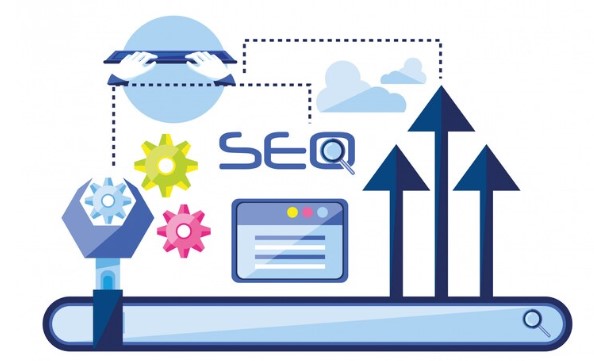In the dynamic world of digital marketing, search engine optimization (SEO) continues to play a pivotal role in enhancing a brand’s online visibility and driving organic traffic to websites. With search engines like Google perpetually refining their algorithms to provide users with the most relevant and high-quality search results, businesses and digital marketers have a pressing need to understand the distinct approaches of algorithmic SEO and manual SEO. These two methods offer unique advantages and challenges, making it vital to grasp their differences in navigating the intricate web of search engine ranking factors.
Algorithmic SEO: Leveraging the Power of Automation
Algorithmic SEO is the practice of optimizing websites and content by employing automated tools and software solutions. These tools are designed to swiftly evaluate the website’s performance, identify areas that need improvement, and implement changes aligned with the latest search engine algorithms. Let’s delve deeper into the key aspects of algorithmic SEO:
- Data-Driven Decision Making: Algorithmic SEO relies heavily on data and analytics to make informed decisions. Automated tools can efficiently process and analyze vast datasets, facilitating data-driven optimizations.
- Consistency: Automated tools offer unwavering consistency in their execution of SEO tasks. Unlike humans who may experience fatigue or errors due to oversight, automation ensures that each task is completed meticulously.
- Scalability: Algorithmic SEO is remarkably scalable, making it well-suited for managing large websites with an extensive number of pages. These tools can efficiently handle substantial SEO tasks without a significant increase in time and effort.
- Speed: Automated tools can execute tasks at a much faster pace than manual methods, which is especially beneficial when responding to algorithm changes or making quick updates.
- Tracking and Monitoring: Algorithmic SEO tools provide robust tracking and monitoring capabilities. SEO professionals can stay up-to-date on website performance and monitor shifts in search engine algorithms.
- Competitive Insights: Algorithmic SEO tools can offer valuable insights into competitors’ strategies, enabling businesses to stay ahead in the competitive search rankings by fine-tuning their own SEO efforts.
Manual SEO: The Human Touch
In contrast, manual SEO relies on the expertise, creativity, and effort of human SEO professionals. This approach involves hands-on optimization, content creation, and building natural, authoritative backlinks. Let’s explore the distinctive aspects of manual SEO:
- Creativity and Expertise: Manual SEO leverages the creativity and expertise of SEO professionals to craft unique, high-quality content and build natural, authoritative backlinks. This human touch is essential for creating content that resonates with the target audience.
- Personalization: Human intervention allows for a more personalized and tailored approach to SEO. Content can be optimized to cater specifically to the needs and preferences of the target audience, resulting in more engaging and relevant content.
- Adaptability: Manual SEO can adapt quickly to algorithm changes and industry trends. Human professionals can exercise judgment and creativity to find innovative solutions and adjust strategies accordingly.
- Quality Control: Human SEO professionals maintain a higher level of quality control over content, ensuring that it aligns with the highest standards for user experience and search engine guidelines.
- Relationship Building: Manual SEO often involves building relationships with other websites and businesses to secure high-quality backlinks and collaborations. These relationships can be challenging for automated tools to establish effectively.
Algorithmic SEO vs. Manual SEO: A Balanced Approach
Rather than viewing algorithmic SEO and manual SEO as competing methodologies, many successful SEO campaigns today embrace a blended approach that combines the strengths of both methods. This strategy offers the flexibility to adapt to the nuances of various industries and websites. Here are some strategies to navigate the complexities of search engine ranking factors effectively:
- Start with Algorithmic SEO: Initiating your SEO strategy with algorithmic tools allows you to swiftly address critical technical SEO issues. These tools excel in identifying and rectifying issues such as site speed, mobile-friendliness, and meta tag optimization.
- Content Creation and Optimization: This is where manual SEO shines. Create high-quality, engaging content that not only incorporates relevant keywords but also addresses the specific needs and interests of your target audience. The human touch in content creation is crucial for achieving content excellence.
- Link Building: Manual link building strategies can help you establish authoritative backlinks and build relationships with other websites in your niche. Combining manual outreach, content collaborations, and relationship-building with automated tools for tracking and analysis is a powerful approach.
- Stay Informed: Keeping abreast of search engine algorithm changes and industry trends is paramount. Algorithmic SEO tools can aid in monitoring these changes, while human expertise can interpret the data and implement necessary adjustments.
- Monitor Performance: Algorithmic SEO tools are instrumental in tracking website performance metrics. However, it’s essential to combine these automated insights with human analysis to make informed, strategic decisions.
- Adapt and Evolve: The SEO landscape is ever-evolving. Being prepared to adapt your strategies and tactics is crucial, whether it involves tweaking automated tools or launching new manual SEO campaigns to respond to shifts in search engine algorithms and user behavior.
Conclusion
In the competitive realm of SEO, algorithmic SEO and manual SEO have distinct strengths and weaknesses. Algorithmic SEO excels in data-driven decision-making, consistency, scalability, and speed, while manual SEO offers creativity, personalization, adaptability, quality control, and relationship building. A balanced approach that combines the strengths of both methods is often the most effective way to navigate the ever-changing landscape of search engine ranking factors.
By remaining updated, adjusting to algorithm changes, and employing the appropriate tools and strategies, SEO company can attain the online visibility and success they aspire to achieve. It’s not about favoring one approach over the other but about discerning when and how to harmonize them to craft a comprehensive SEO strategy that yields enduring results in the fiercely competitive digital landscape.






 +91 9718184875
+91 9718184875 info@ethicalseosolutions.com
info@ethicalseosolutions.com

